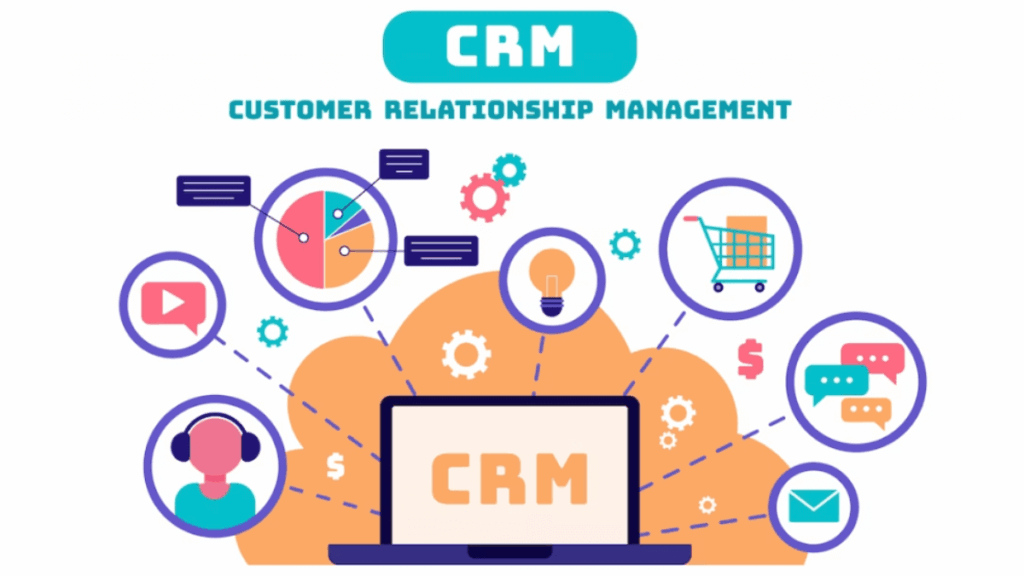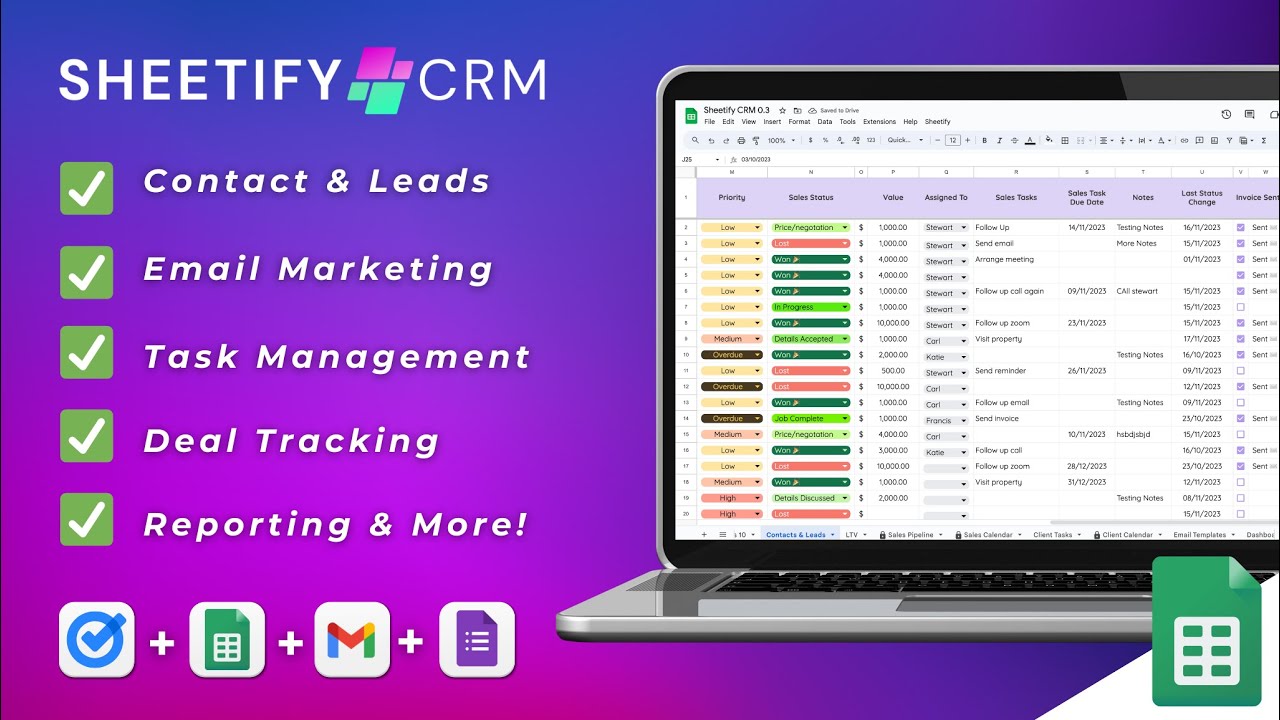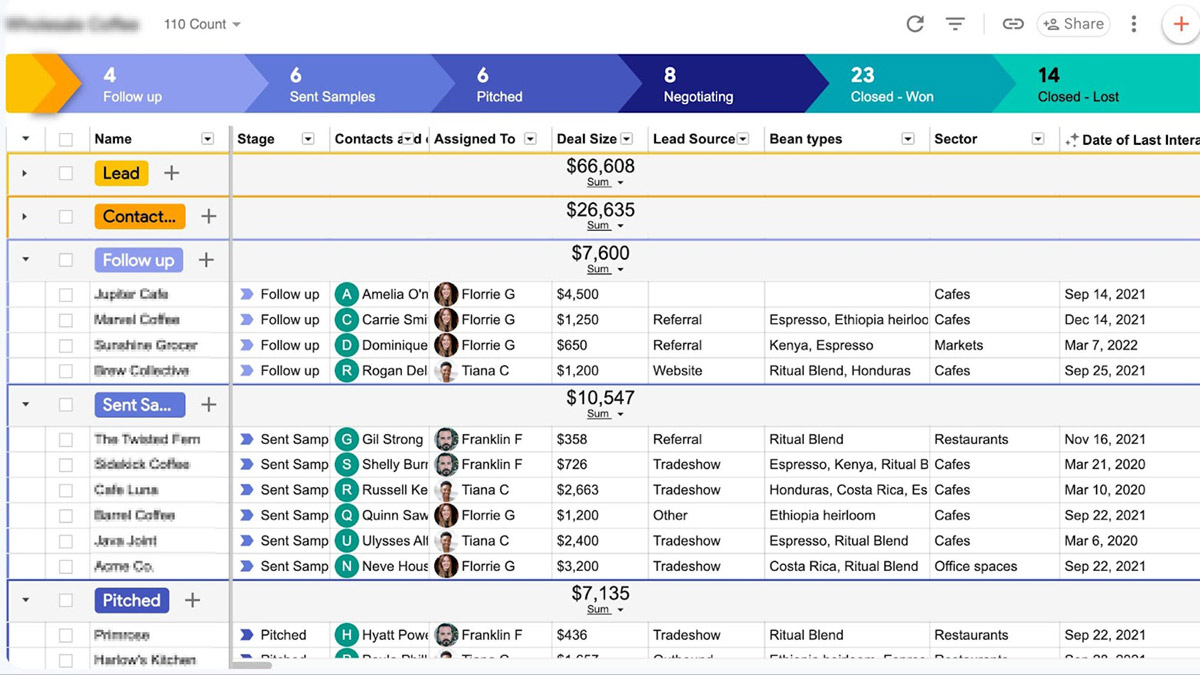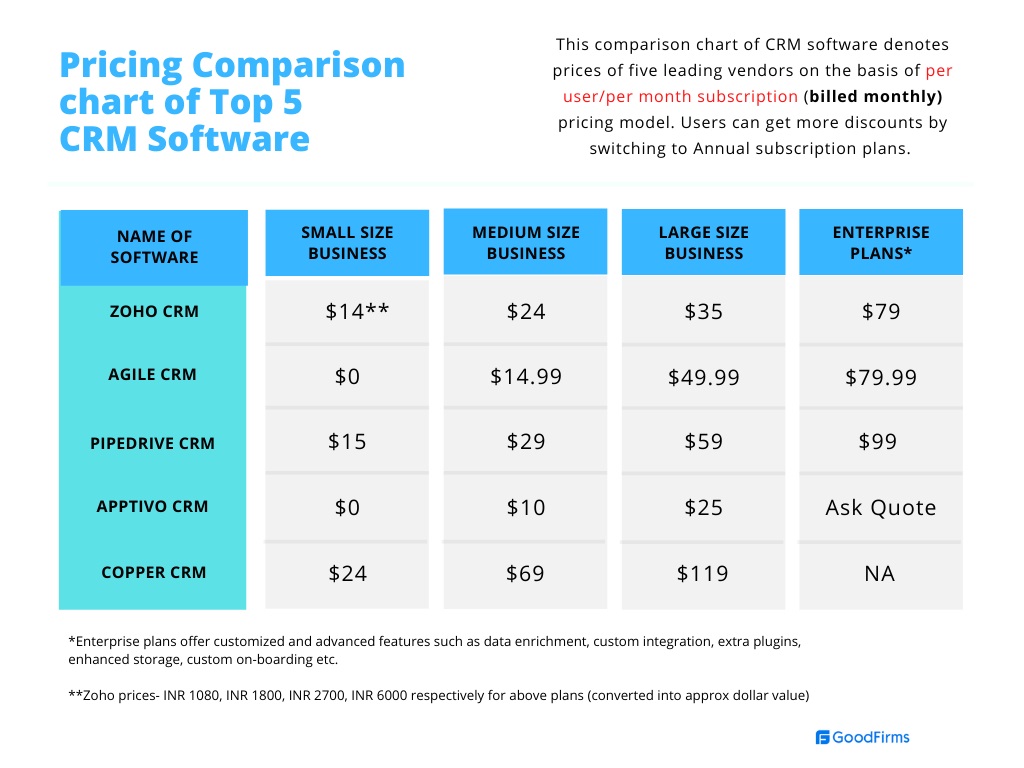The Ultimate Small Business CRM Guide: Boost Sales, Delight Customers, and Scale Your Business

The Ultimate Small Business CRM Guide: Boost Sales, Delight Customers, and Scale Your Business
Starting and running a small business is an exhilarating journey. You’re the visionary, the strategist, the doer. You wear many hats, and you’re constantly juggling tasks to keep things moving forward. In this dynamic environment, one of the most critical tools you can leverage is a Customer Relationship Management (CRM) system. This comprehensive guide will walk you through everything you need to know about CRM for small businesses: what it is, why you need it, how to choose the right one, and how to implement it effectively to drive growth and success.
What is a CRM? Demystifying Customer Relationship Management
At its core, a Customer Relationship Management (CRM) system is a software solution designed to manage and analyze customer interactions and data throughout the customer lifecycle. Think of it as a central hub where all your customer-related information resides. This information includes contact details, communication history, purchase history, preferences, and any other relevant data that helps you understand and engage with your customers better. But it’s more than just a database; a CRM is a powerful tool for building strong customer relationships, streamlining processes, and ultimately, boosting your bottom line.
A CRM system allows you to:
- Centralize Customer Data: Keep all your customer information in one place, accessible to your team.
- Track Interactions: Log calls, emails, meetings, and other interactions with customers.
- Automate Tasks: Automate repetitive tasks like sending follow-up emails or scheduling appointments.
- Improve Sales Processes: Manage leads, track deals, and forecast sales more accurately.
- Enhance Customer Service: Provide faster and more personalized support to your customers.
- Gain Insights: Analyze customer data to identify trends, understand customer behavior, and make data-driven decisions.
Why Your Small Business Needs a CRM
In the early days of your business, you might be able to manage customer interactions using spreadsheets, sticky notes, and your memory. However, as your customer base grows, this approach quickly becomes unsustainable. A CRM becomes essential for several reasons:
1. Improved Customer Relationships
A CRM empowers you to build stronger relationships with your customers. By having a complete view of each customer’s history and preferences, you can personalize your interactions, anticipate their needs, and provide exceptional customer service. This leads to increased customer satisfaction, loyalty, and ultimately, more repeat business.
2. Increased Sales and Revenue
A CRM streamlines your sales processes, making it easier to manage leads, track deals, and close sales. It helps you identify and prioritize the most promising leads, automate follow-up tasks, and track your sales performance. This results in a more efficient sales process, leading to more sales and increased revenue. Think about it: with a CRM, you can nurture leads through the sales pipeline, ensuring no opportunity slips through the cracks. You’ll have a clearer picture of where each prospect stands, enabling you to tailor your approach and increase your chances of closing the deal.
3. Enhanced Efficiency and Productivity
A CRM automates many time-consuming tasks, such as data entry, email marketing, and appointment scheduling. This frees up your team’s time to focus on more strategic activities, such as building relationships, closing deals, and providing excellent customer service. By automating repetitive tasks, you can significantly improve your team’s productivity and efficiency.
4. Better Data Management and Reporting
A CRM provides a centralized repository for all your customer data, making it easy to access and analyze. You can generate reports on sales performance, customer behavior, and marketing campaign effectiveness. This data-driven approach allows you to make informed decisions and continuously improve your business strategies.
5. Scalability and Growth
As your business grows, a CRM system can scale with you. It can accommodate a growing customer base, a larger sales team, and more complex business processes. Investing in a CRM early on will prepare you for future growth and ensure that you can continue to provide excellent customer service as your business expands.
Key Features to Look for in a Small Business CRM
Not all CRM systems are created equal. When choosing a CRM for your small business, consider the following key features:
1. Contact Management
This is the foundation of any CRM. It should allow you to store and manage all your customer contact information, including names, addresses, phone numbers, email addresses, and social media profiles. It should also allow you to segment your contacts based on various criteria, such as demographics, purchase history, and lead source.
2. Lead Management
A good CRM should help you manage your leads effectively. This includes capturing leads from various sources, such as website forms, email campaigns, and social media, and tracking their progress through the sales pipeline. It should also allow you to assign leads to sales representatives, set up follow-up tasks, and track lead conversion rates.
3. Sales Automation
Sales automation features can significantly improve your sales team’s efficiency. Look for a CRM that can automate repetitive tasks such as sending follow-up emails, scheduling appointments, and creating sales quotes. This will free up your sales team’s time to focus on building relationships and closing deals.
4. Marketing Automation
Marketing automation features can help you automate your marketing efforts. Look for a CRM that can send targeted email campaigns, track website activity, and score leads based on their engagement. This will help you nurture leads and convert them into customers.
5. Reporting and Analytics
A good CRM should provide robust reporting and analytics capabilities. It should allow you to track key performance indicators (KPIs) such as sales revenue, customer acquisition cost, and customer lifetime value. This data-driven approach will help you make informed decisions and continuously improve your business strategies.
6. Integrations
Consider the integrations your CRM offers. It should integrate seamlessly with other tools you use, such as email marketing platforms, accounting software, and social media channels. This will streamline your workflows and eliminate the need for manual data entry.
7. Mobile Accessibility
In today’s fast-paced business environment, it’s essential to have access to your CRM data on the go. Look for a CRM with a mobile app that allows you to access your customer information, manage leads, and track sales performance from your smartphone or tablet.
8. User-Friendliness
Choose a CRM that is easy to use and navigate. The interface should be intuitive and the features should be easy to understand. This will ensure that your team can quickly adopt the CRM and start using it effectively.
9. Customization Options
Your CRM should be customizable to meet your specific business needs. Look for a CRM that allows you to customize fields, workflows, and reports. This will ensure that the CRM aligns with your unique business processes.
Choosing the Right CRM for Your Small Business
Selecting the right CRM for your small business is a crucial decision. Here’s a step-by-step guide to help you make the right choice:
1. Assess Your Needs and Goals
Before you start evaluating CRM systems, take the time to assess your business needs and goals. What are your pain points? What are your priorities? What do you hope to achieve with a CRM? Defining your needs and goals will help you narrow down your options and choose a CRM that is a good fit for your business.
2. Research Different CRM Providers
Once you have a clear understanding of your needs and goals, start researching different CRM providers. Read reviews, compare features, and check pricing. Consider both established players and newer, more agile solutions that cater specifically to small businesses. Look for providers that offer free trials or demos so you can test out the software before you commit.
3. Consider Your Budget
CRM systems come in a variety of price points. Determine your budget and choose a CRM that fits within your financial constraints. Keep in mind that the most expensive CRM is not always the best. The best CRM is the one that meets your needs and provides the best value for your money.
4. Evaluate Features and Functionality
Carefully evaluate the features and functionality of each CRM you are considering. Does it offer the features you need, such as contact management, lead management, sales automation, and marketing automation? Does it integrate with the other tools you use? Does it have a mobile app? Ensure that the CRM meets your specific requirements.
5. Consider Scalability
Choose a CRM that can scale with your business. As your business grows, you will need a CRM that can accommodate a growing customer base, a larger sales team, and more complex business processes. Make sure the CRM you choose can handle your future growth.
6. Check for Integrations
Ensure that the CRM integrates with other tools you use, such as email marketing platforms, accounting software, and social media channels. This will streamline your workflows and eliminate the need for manual data entry. Integration is key to a seamless workflow.
7. Read Reviews and Testimonials
Read reviews and testimonials from other small businesses. This will give you valuable insights into the strengths and weaknesses of each CRM. Look for reviews that are specific to small businesses and that address your specific needs.
8. Try a Free Trial or Demo
Before you commit to a CRM, try a free trial or demo. This will allow you to test out the software and see if it is a good fit for your business. Pay attention to the user interface, the ease of use, and the overall functionality. This hands-on experience is invaluable.
9. Choose the Right Deployment Method
CRM systems are available in two main deployment methods: cloud-based and on-premise. Cloud-based CRM systems are hosted by the CRM provider and are accessed over the internet. On-premise CRM systems are installed on your own servers. Cloud-based CRM systems are generally easier to set up and maintain, while on-premise CRM systems offer more control and customization options. Consider your technical expertise and budget when choosing a deployment method.
10. Get Support and Training
Make sure the CRM provider offers adequate support and training. This will help you and your team get up to speed quickly and ensure that you can effectively use the CRM. Look for providers that offer online documentation, tutorials, and customer support.
Implementing Your Small Business CRM: A Step-by-Step Guide
Once you’ve chosen your CRM, the next step is implementation. Proper implementation is critical to the success of your CRM initiative. Here’s a step-by-step guide:
1. Plan Your Implementation
Before you start implementing your CRM, create a detailed implementation plan. This plan should include your goals, timelines, and the resources you will need. Clearly define what you want to achieve with the CRM and how you will measure its success. This planning phase is essential for a smooth transition.
2. Clean and Migrate Your Data
Before you import your data into the CRM, clean it up. Remove any duplicate entries, correct any errors, and ensure that your data is accurate and consistent. This will improve the quality of your data and make it easier to use. Data migration can be complex, so plan this step carefully.
3. Customize Your CRM
Customize your CRM to meet your specific business needs. This may involve customizing fields, workflows, and reports. Take the time to configure the CRM to align with your unique business processes. This will help you get the most out of your CRM.
4. Train Your Team
Provide adequate training to your team on how to use the CRM. This will ensure that they understand the features and functionality of the CRM and can use it effectively. Offer different training sessions for different roles, if necessary, to maximize impact.
5. Integrate with Other Tools
Integrate your CRM with other tools you use, such as email marketing platforms, accounting software, and social media channels. This will streamline your workflows and eliminate the need for manual data entry. Make sure your CRM is talking to your other essential business applications.
6. Test and Refine
Test your CRM thoroughly before you launch it. Make sure that all the features and functionality are working correctly. After the launch, monitor the CRM’s performance and make any necessary adjustments. Continuous refinement is crucial.
7. Encourage Adoption
Encourage your team to use the CRM. Communicate the benefits of the CRM and provide ongoing support. Recognize and reward team members who are actively using the CRM. User adoption is key to success.
8. Monitor and Analyze
Regularly monitor your CRM’s performance and analyze the data. Track key performance indicators (KPIs) such as sales revenue, customer acquisition cost, and customer lifetime value. Use this data to make informed decisions and continuously improve your business strategies. Data analysis is your friend!
Common CRM Challenges and How to Overcome Them
While a CRM can bring significant benefits, there are also some common challenges that small businesses may face. Here’s how to overcome them:
1. Lack of User Adoption
One of the biggest challenges is getting your team to actually use the CRM. To overcome this, provide adequate training, communicate the benefits of the CRM, and make it easy to use. Make sure everyone understands how the CRM will make their lives easier.
2. Poor Data Quality
Garbage in, garbage out. If your data is inaccurate or incomplete, your CRM will not be effective. To overcome this, clean your data before you import it into the CRM, and implement data validation rules to ensure that new data is accurate and consistent. Data hygiene is critical.
3. Integration Issues
If your CRM does not integrate with other tools you use, you will have to manually enter data, which can be time-consuming and error-prone. To overcome this, choose a CRM that integrates with the other tools you use, or use a third-party integration platform.
4. Lack of Customization
If your CRM is not customized to meet your specific business needs, it may not be effective. To overcome this, customize your CRM to align with your unique business processes. Don’t be afraid to tailor the system to your needs.
5. Cost Concerns
CRM systems can be expensive, especially for small businesses. To overcome this, choose a CRM that fits within your budget. Consider both the initial cost and the ongoing costs, such as maintenance and support. Look for affordable options that still offer the features you need.
6. Overwhelming Complexity
Some CRM systems can be complex and difficult to learn. To overcome this, choose a CRM that is easy to use and has a user-friendly interface. Consider the learning curve for your team.
The Future of CRM for Small Businesses
The CRM landscape is constantly evolving, and there are several trends that are shaping the future of CRM for small businesses:
- Artificial Intelligence (AI): AI is being used to automate tasks, personalize customer interactions, and provide insights into customer behavior.
- Mobile CRM: Mobile CRM is becoming increasingly important, as businesses need to be able to access their CRM data on the go.
- Social CRM: Social CRM integrates social media data into the CRM, allowing businesses to track customer interactions on social media and provide more personalized customer service.
- Personalized Experiences: CRM systems are increasingly focusing on providing personalized customer experiences.
- Integration and Automation: The trend is towards increased integration with other business tools and more automation of tasks.
Staying ahead of these trends will be crucial for small businesses to remain competitive and provide excellent customer service.
Conclusion: Embracing CRM for Small Business Success
In conclusion, a CRM system is an invaluable tool for small businesses looking to improve customer relationships, boost sales, and streamline their operations. By choosing the right CRM, implementing it effectively, and addressing the common challenges, you can unlock the full potential of CRM and drive significant growth for your business. Don’t delay – start exploring CRM options today and take your business to the next level!
Remember, the right CRM is an investment in your future. It’s about building lasting customer relationships, making data-driven decisions, and ultimately, creating a thriving and successful business.





